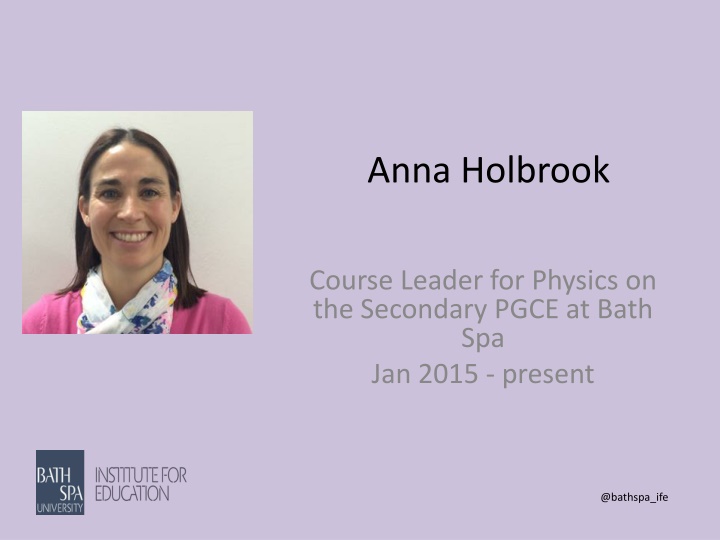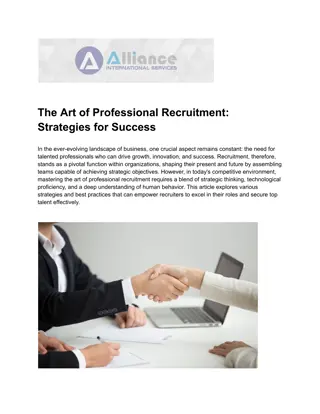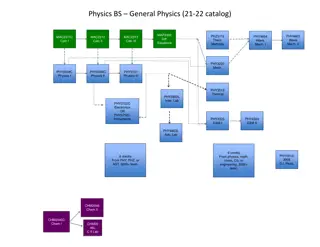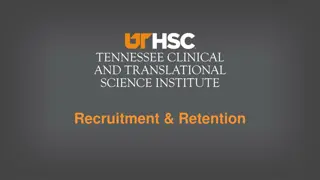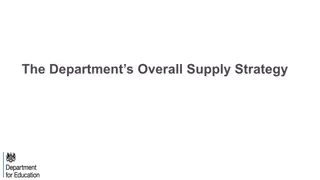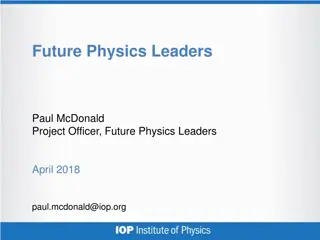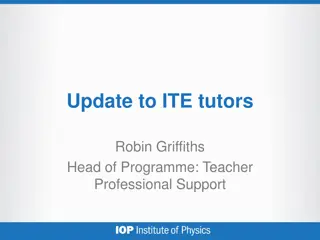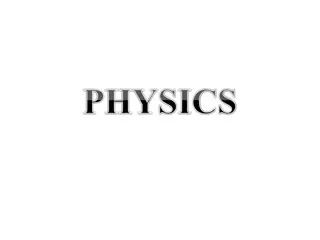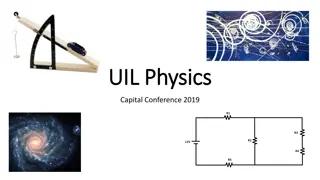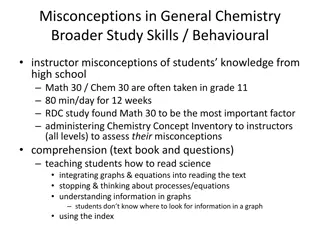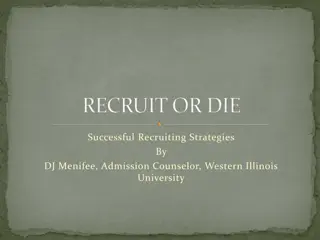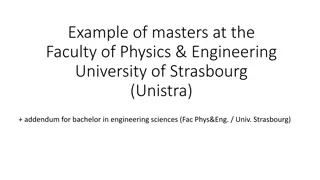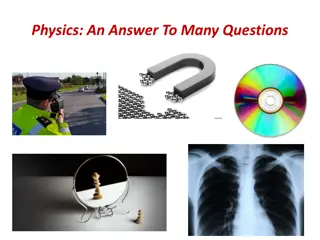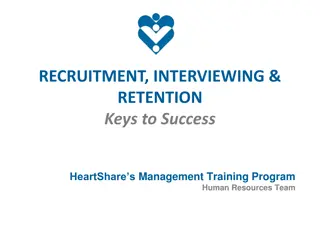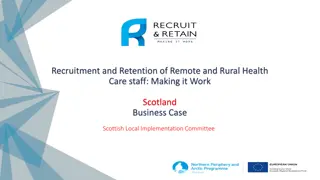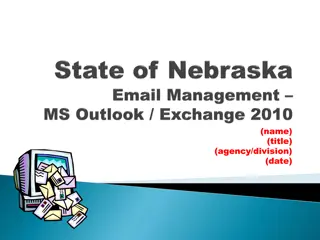Teacher Recruitment and Retention in Physics and Chemistry Education
Anna Holbrook, a Course Leader for Physics on the Secondary PGCE at Bath Spa University, is conducting research on teacher recruitment and retention in physics and chemistry education. The project aims to understand the impact of IOP/RSC scholarships and SKE courses on novice teachers' early careers. Through qualitative interviews and an exploratory approach, the project seeks to identify strategies for resolving deficits in recruitment and retention.
Download Presentation

Please find below an Image/Link to download the presentation.
The content on the website is provided AS IS for your information and personal use only. It may not be sold, licensed, or shared on other websites without obtaining consent from the author.If you encounter any issues during the download, it is possible that the publisher has removed the file from their server.
You are allowed to download the files provided on this website for personal or commercial use, subject to the condition that they are used lawfully. All files are the property of their respective owners.
The content on the website is provided AS IS for your information and personal use only. It may not be sold, licensed, or shared on other websites without obtaining consent from the author.
E N D
Presentation Transcript
Anna Holbrook Course Leader for Physics on the Secondary PGCE at Bath Spa Jan 2015 - present @bathspa_ife
Research Update my first project Timeline of project: Jan: Approached by Anne Parfitt, research fellow, in DiTE about an exploratory project she had in mind March: Successful application made for Seed funding Mid April: Ethics form is about submitted End of April: Currently working on second draft of ethics form and attend IOP Conference Dec 2018: Project end @bathspa_ife
So, youre good at Physics but can you teach it? @bathspa_ife
Rationale Problem: Teacher recruitment / retention in physics and chemistry Solutions: IOP/RSC scholarships and SKE courses Question: What is it about these two routes that is making a difference in the early careers of novice teachers? Hoping to learn: What the elements are, that can make a difference, if any. What we hope to do with our findings: a) Feed into a larger scale project b) May enable school leaders and policymakers to develop potential strategies that could contribute to resolving the current deficits in recruitment and retention. @bathspa_ife
Goals an exploratory project 1. We want to find out more about PEC s across the country and IOP scholarships this will enable us to ask the right questions to formulate our next investigation 2. What do our research participants report about the different capabilities of the two cohorts? 3. What are appropriate measures by which to compare the two cohorts? @bathspa_ife
Our Approach - Qualitative Interviews 1. Our own graduates (NQTs/ RQTs) 2. School science department leaders/coordinators 3. Academic tutors leading PGCE science programmes / PEC in other universities 4. Co-ordinators for ITE in national organisations such as the Institute for Physics (IOP) and Royal Society for Chemistry (RSC). @bathspa_ife
Subject Knowledge Enhancement Physics Enhancement Course What do I know? @bathspa_ife
What do I know? First started in 2003 (I believe) Currently 28 providers offer either f2f, blended, online or a combo of these. 10 providers offer f2f The courses can be between 8 and 28 weeks long. There is a bursary for anything above a 3rd (but the ske provider does get the funding) You need a degree in a closely related subject or a degree in any subject but have physics A level/professional experience in physics, a degree in physics but its been a while. What I don t know: How many people each year successfully complete a PEC? How many courses actually ran this year? @bathspa_ife
What else dont I know? Validation / accreditation / QA of the PEC courses? (RSC accredit chem ske) Are the f2f courses comparable across the country? Are some preparing students better than others? If so how, why, what can we learn from this? What are the conditions for passing these courses? What was the background of those completing the PEC? (TA, career changer, biologist after a bigger bursary?!) Are PEC students succeeding in getting jobs as quickly as others? @bathspa_ife
IOP scholarships Not done much digging here yet. I didn t know that you could get an IOP scholarship if you have come through the PEC route ..how often has this happened? @bathspa_ife
What are your experiences? What are, if any, the patterns / trends in strengths and weaknesses between the two routes that may have emerged over the years? Eg I find that generally IOP scholars have a strength in ..but a weakness in . When a trainee needs extra support are they more often from a particular route? If so what route and what may the reasons have been? When you have to offer extra support to a struggling trainee, what type of support is needed most often? Eg subject knowledge, actual delivery of lesson, lesson planning, pedegogy, behaviour management @bathspa_ife
Thank you! a.holbrook@bathspa.ac.uk @bathspa_ife
